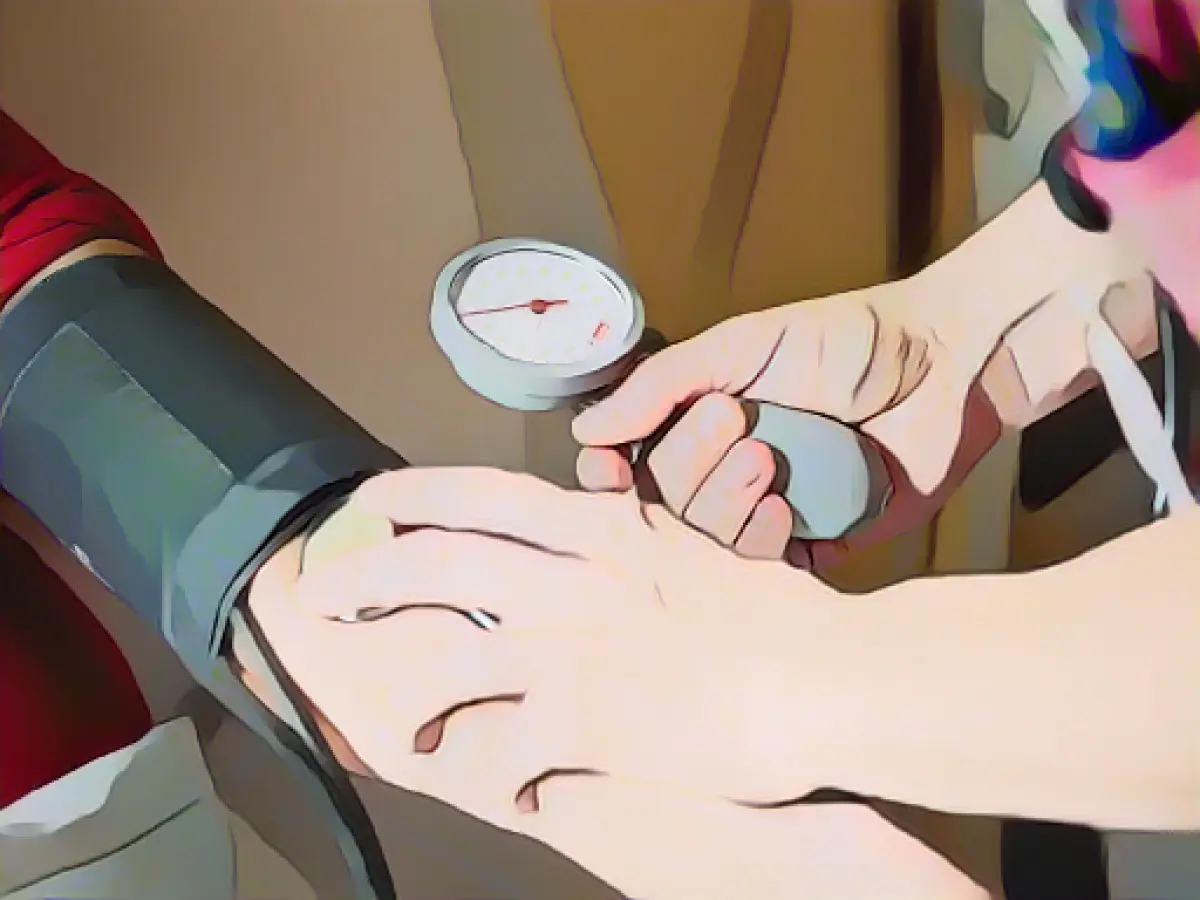Cutting Back on Salt: A Game-Changer for Hypertensive Patients on Meds
If you're one of the numerous people worldwide dealing with high blood pressure and treating it with medication, consider this: reducing your salt intake could significantly lower your blood pressure further. This stunning revelation stems from a study by a team at Northwestern University in Chicago, involving 213 individuals between the ages of 50 and 75.
The study, detailed in the "Jama" journal, revealed that three-quarters of the test subjects experienced a notable decrease in blood pressure after just 7 days on a low-salt diet. This reduction was independent of age, gender, ethnicity, BMI, and diabetes status.
High blood pressure is a leading global cause of illness and mortality. "It often results in heart failure, heart attacks, and strokes due to the additional pressure placed on the arteries," explains study leader Norrina Allen from Northwestern University. Though the connection between salt consumption and blood pressure was previously acknowledged, researchers were still unsure if individuals already taking antihypertensive medication could further reduce their blood pressure by decreasing salt levels.
Detailed Findings
The research focused on sodium consumption. Among participants, 25% had normal blood pressure, while the rest had high blood pressure, either controlled, uncontrolled, or untreated. The average age was 61, and women made up 65% of the subjects. The median systolic blood pressure (upper number in a blood pressure reading) was 125, and the median daily sodium intake, at 4.45 grams, was well above the World Health Organization's (WHO) recommended limit of 2 grams of sodium (approximately 5 grams of salt).
The researchers divided participants into two groups: one group adhered to a diet with 2.2 grams of sodium per day, on top of their usual sodium intake, while the other group exclusively consumed 0.5 grams of sodium daily. After a week, the groups switched diets.
After week one, participants on the low-salt diet had an average systolic blood pressure of 8 millimeters of mercury lower than those in the high-salt group. The results were consistent in week two, with participants on the reduced-sodium diet having an average systolic blood pressure 7 millimeters lower than those continuing high-sodium consumption.
Unexpected Results
Though the high-sodium diet led to only minor increases in systolic blood pressure, study authors suspect a "satiety effect" played a part. 9.9% of participants reported mild side effects like headaches, gastrointestinal symptoms, and edema. However, most tolerated the low-sodium diet well, with 8% experiencing temporary cramps and weakness.
Thoughts from the Field
Vanderbilt University Medical Center's Deepak Gupta believes that even minor sodium reductions from typical diets can positively impact blood pressure for most individuals. Charité Berlin's Markus van der Giet, now President of the German Hypertension League, notes that some patients may be able to manage mild hypertension with a low-salt diet but emphasizes that medication is essential for many. Only a small percentage can achieve the 0.5 grams of sodium used in the study in daily life, making it impractical as a long-term solution.
Nonetheless, reducing salt is a simple, effective measure for high blood pressure management, emphasizes van der Giet. The study underscores the value of a low-salt diet in conjunction with antihypertensive medication, helping patients better control their blood pressure and reduce their risk of related health issues.
Sources:
Enrichment Insights:
- WHO Guidelines: The World Health Organization advises limiting daily sodium intake to below 2 grams to improve heart health and lower non-communicable disease risks [1].
- Genetic Factors: Research into the genetic basis of hypertension has identified variations in genes related to ion channels and transporters, such as WNK1, influencing blood pressure regulation [2].
- Sodium and Health: Reducing sodium intake is a cost-effective strategy to improve public health, potentially averting many cardiovascular events and deaths [3].




